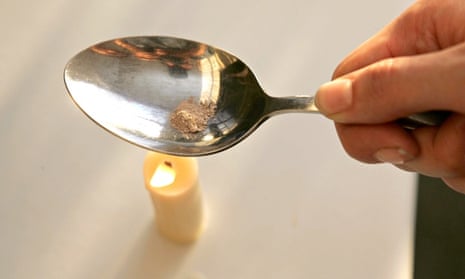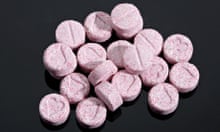Former home office minister Norman Baker’s parting shot from government earlier this month was to call for leadership of the UK drug strategy to move from an enforcement-obsessed Home Office to a treatment-focused Department of Health. The rationale is that “drugs is a health issue” and the “faltering steps” England has taken to improve treatment need to accelerate, a task best driven from health. My view, based on 12 years in Whitehall responsible for the English drug treatment system, is that it would be a disaster.
Drug policy and drug treatment has never been a priority for the DH or the NHS. The financial crisis, the interface between health and social care, waiting times, cancer, dementia, and a host of other issues dominate the DH/NHS agenda. Even when policy is focused on the wider social determinants of health in an effort to reduce the burden on scarce NHS resources, the priorities are smoking (80,000 deaths a year), obesity (30,000) and alcohol (6,500) – not illegal drugs (2,000). Drug use simply doesn’t kill enough people or cause as much ill-health as other risky behaviours, and the priority accorded to it by successive DH and NHS leaderships reflects that.
The government estimates that drug misuse causes £15bn worth of harm to society – £13bn of this being the cost of drug-related crime – dwarfing the £5bn of health harm from smoking. Home Office research estimates that 50% of the marked rise in crime that occurred in the 1980s and 90s is attributable to the successive waves of heroin epidemics. It also attributes 30% of the reduction in crime since 2000 to the reduction of heroin addiction, and the increasing availability of treatment since 2001.
Very few drug addicted offenders were honest citizens before they became addicts. Addiction typically amplifies existing criminality rather than creating new cohorts of offenders . Similarily aAccess to treatment is not a panacea, but it will, on average, halve the offending of those in services compared with those who are not. This crime reduction dividend was the rationale behind the government’s hugely increased investment in treatment, up from £50m to £600m a year. Public Health England estimates that providing ready access to treatment for around 200,000 individuals – more than twice as many as in 2001 – prevents 4.9m crimes each year.
Against this background it is not surprising that the Home office have a very different view of the significance of drug policy and the value of drug treatment to DH. The private view in DH is that the current level of drug spend is a misdirection of scarce health resources which are needed to respond to more pressing health priorities. This is echoed in the NHS; the likelihood of significant re-prioritisation of resources away from drug treatment towards more traditional health priorities was a key reason for the decision to locate responsibility for commissioning drug treatment with local authorities rather than GP-led clinical commissioning groups in 2013.The Home Office view is that the current spend on treatment is cost-effective, yielding, according to the National Audit Office, £2.50 worth of value for the taxpayer from every £1 invested. Although most of this return is accounted for by reductions in offending, treatment engagement also lowers public health risk. England has one of the lowest levels of HIV among injecting drug users in the world. It provides the first step towards recovery and much needed stability for people leading chaotic lives. While in treatment, addicts are less likely to recruit the next cohort of heroin and crack users.
Put simply, the Home Office sees drug treatment as value for money, while the DH sees it as a wasted opportunity. The different orientations of the two departments are particularly important at the moment as the resources currently spent on drug treatment across England come under threat of disinvestment by hard pressed councils looking to raid their public health grants to prop up core services. Historically, the DH has been relaxed about local health economies choosing to spend resources allocated for drug treatment on other priorities. Indeed, on a number of occasions it has sought to disinvest itself, only backing away when directly challenged by the Home Office supported by No 10. Locating policy responsibility with the DH would severely hamper future home secretaries’ ability to protect the health spend on drug treatment, which they have successfully defended since they assumed responsibility for overall drug policy in 2001.
So what may appear at first sight as “common sense”, or a more liberal-minded approach to drugs misuse – by treating it as a health issue rather than a criminal activity – would most likely result in drug policy becoming the responsibility of a department that isn’t very interested, has a wealth of competing priorities, and a track record of seeking to disinvest from the very intervention that the proposal is designed to promote. In contrast, a department that has a powerful rationale for championing treatment, and a track record of doing so, would be sidelined. Not much evidence-based policy here.







